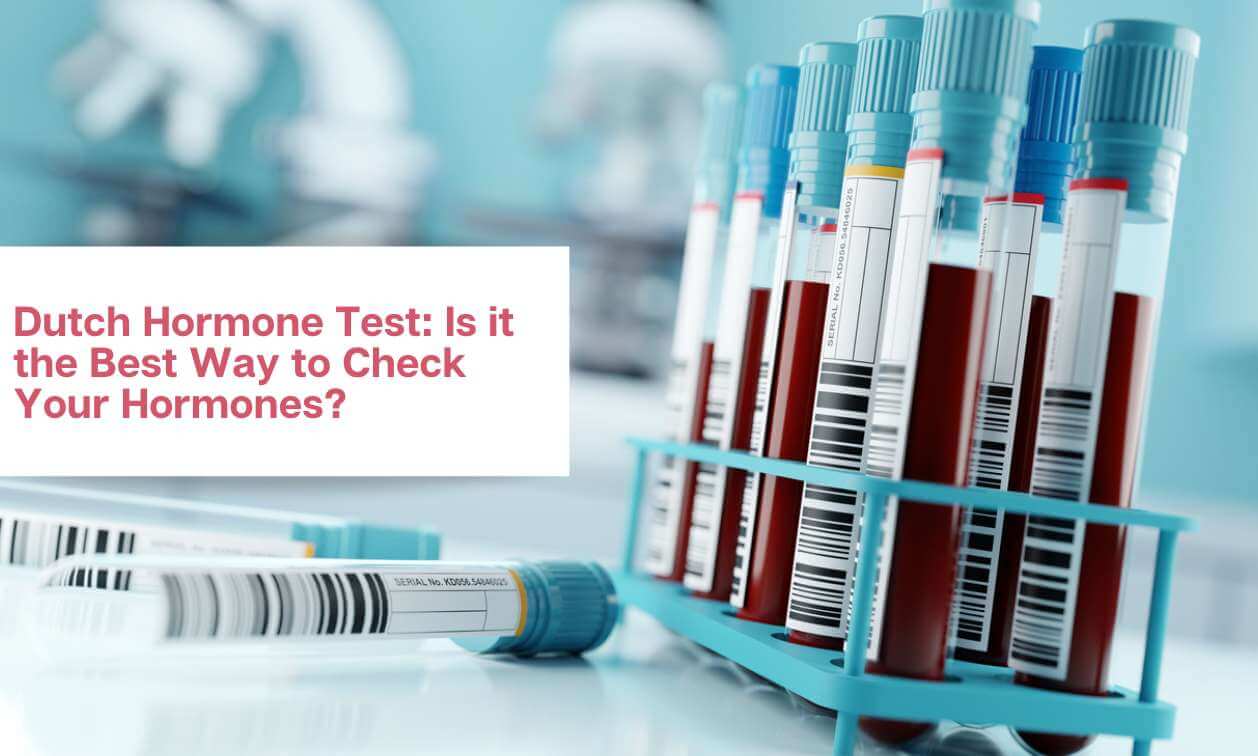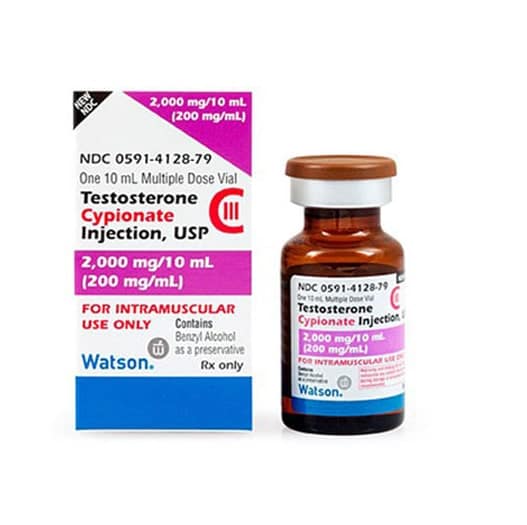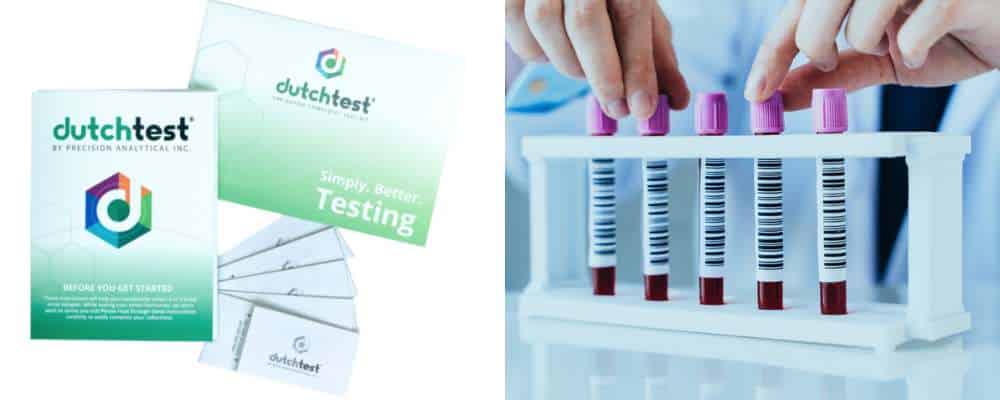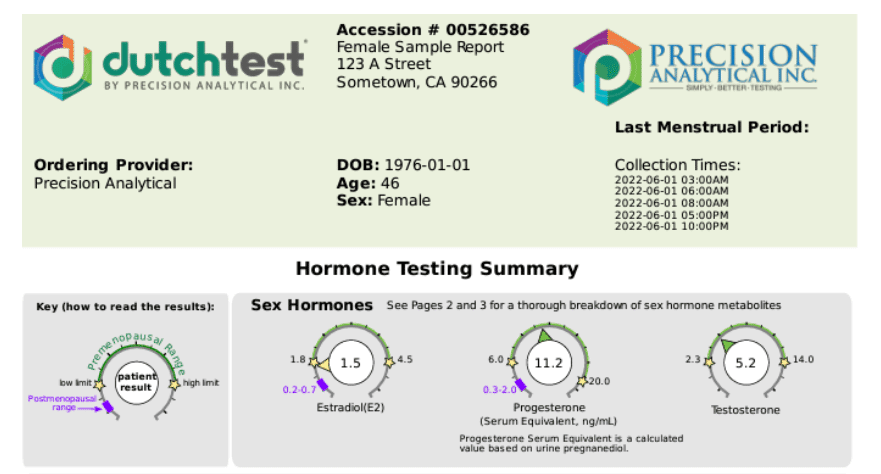
Dutch Hormone Test: Is it the Best Way to Check Your Hormones?
Table of Contents
What is the DUTCH Complete Hormone Test?
The DUTCH Complete™ hormone test is a comprehensive laboratory examination that has numerous diagnostic functions that we’ll explore here.
The test’s manufacturer bills its product as “the most advanced hormone test, offering an extensive profile of sex and adrenal hormones and melatonin, along with their metabolites, to identify symptoms of hormonal imbalances.”
Research published in Chemistry Central shows that the analytical method used in the DUTCH Complete Hormone test shows it is an excellent alternative to serum (blood) testing:
“For estradiol and progesterone, the dried urine assay is a good surrogate for serum testing. The 4-spot method can be used instead of 24-h urine collections and dried urine results are comparable to liquid urine. The dried urine assay is useful for some clinical assessments of hormone disorders and may be useful in large epidemiologic studies due to ease of sample handling.”
Other studies recommend the DUTCH Complete Hormone Test as a frontline diagnostic tool for healthcare professionals.
What does the DUTCH Complete Hormone Test measure?
The DUTCH Complete Hormone Test is by far the most comprehensive, exhaustive at-home test you can find on the market, hands-down. It’s the gold standard of mail-in hormone testing, which is why we recommend it to our patients.
What hormones does the test measure?
Here’s the complete list of hormones that the DUTCH Complete Hormone Test measures:
- Testosterone. Testosterone is the male sex hormone (androgen) that promotes lean muscle development, fat burning, a healthy libido (sex drive), and performs multiple other functions. A huge percentage of the aging male population is deficient in testosterone, as are many women who are experiencing menopause.
- Estrogen. Estrogen is the yin to testosterone’s yang – the main female sex hormone. Symptoms of estrogen imbalance in women include weight gain, fatigue, hot flashes, breast tenderness, mood swings, and irregular periods. High estrogen levels in men also negatively impact health, causing infertility, depression, and erectile dysfunction, among other symptoms.
- Progesterone. Progesterone is another female sex hormone that helps to regulate the menstrual cycle in women and to facilitate pregnancy. It’s also necessary for the production of other steroid hormones and is critical for optimal brain function. Exogenous progesterone is often used in hormone replacement therapy (HRT) to support healthy levels of sex hormones, especially in women experiencing menopause.
- DHEA-S. DHEA is an endogenous steroid hormone precursor, produced in the kidneys and gonads that “modulates cardiovascular signalling pathways and exerts an anti-inflammatory, vasorelaxant and anti-remodelling effect,” and is an often-overlooked critical hormone for optimal health.
- Cortisol. AKA the “stress hormone,” cortisol, also a steroid hormone produced in the adrenal glands, can cause numerous and serious health impacts when levels are either too high or too low.
- Melatonin. Known as the “sleep hormone,” melatonin regulates the body’s circadian rhythm (the sleep-wake cycle) among other activities. Melatonin counters the effects of cortisol and may be negatively impacted by common lifestyle practices such as screen time before going to bed and chronic stress.
- Metabolites of these hormones. Read on to learn why measuring metabolites is beneficial.
Why is measuring hormone metabolites important?
Measuring hormone metabolites lends further analytical insight into how hormones are processed in the body. These tests show how well the body utilizes and ultimately eliminates hormones from the body, and indicate whether unhealthy levels of hormones are built up in the body that might cause health issues.
In advanced diagnostic work, testing these metabolites is common. Unfortunately, many primary care doctors and everyday hormone tests overlook this important component of a comprehensive hormone health analysis.
What oxidative stress marker does the test measure?
8-OHdG is an important marker of DNA damage induced by oxidative stress. Research published in Journal of Environmental Science and Health Part C Environmental Carcinogenesis & Ecotoxicology Reviews explains:
“In nuclear and mitochondrial DNA, 8-hydroxy-2′ -deoxyguanosine (8-OHdG) or 8-oxo-7,8-dihydro-2′ -deoxyguanosine (8-oxodG) is one of the predominant forms of free radical-induced oxidative lesions, and has therefore been widely used as a biomarker for oxidative stress and carcinogenesis. Studies showed that urinary 8-OHdG is a good biomarker for risk assessment of various cancers and degenerative diseases.”
What organic acids does the test measure?
Aside from the hormone measurements, the DUTCH Complete Hormone Test also measures a series of organic acids via the DUTCH OATS test.
The organic acids levels tested include:
- Xanthurenate
- Pyroglutamate elevations
- Kynurenate
- Methylmalonate
These four acids increase in concentration in the urine when an individual is experiencing some form of vitamin deficiency — vitamin B6, B12, or glutathione, respectively. This is hugely beneficial from a diagnostic perspective because these nutritional deficiencies may often present clinically in a similar fashion to hormone deficiencies.
In addition to the organic acids above, the test also indicates levels of two neurotransmitters, dopamine and norepinephrine/epinephrine.
The bottom line here is that the DUTCH Complete Hormone Test is the single most comprehensive at-home hormone test available on the market today. It examines not only multiple hormone levels but also other relevant data that provides greater insight into a patient’s symptoms and, ultimately, paints a better picture in terms of moving forward with a recovery plan.
How does the DUTCH Complete Hormone Test work?
Here’s how the process works in a nutshell:
- The patient undergoes an initial consultation online with a medical professional to gather background information and then orders a test kit online.
- The kit arrives in the mail with full instructions included and all the materials the patient needs to perform the test at home. A return envelope is included to return the test kit for processing.
- The patient fills out a health questionnaire regarding supplements and medications, medical history, and other relevant details to augment the analysis.
- The patient dips the test strip in urine several times across a 24-hour period to paint a broad picture of hormone levels throughout the day (which is preferable to a single snapshot in time).
- The test strips are mailed back to the lab in a pre-labeled envelope for processing.
- The lab mails the results in the form of a comprehensive 16-page report to the patient’s doctor for analysis and reporting to the patient.
- The doctor reconvenes with the patient to discuss the results and any proactive steps to take to improve hormone balance, treat any deficiencies, and restore health.
Many patients appreciate that there are no needles or in-person doctor appointments required. So if you have a needle phobia or don’t have time to travel to a doctor’s office, you’re in the clear.
How much does the DUTCH Complete Hormone Test cost?
Depending on where you purchase your test, your DUTCH Complete Test will cost somewhere in the neighborhood of $400. The test is currently available direct from the manufacturer for $399. However, many medical practitioners have deals with the manufacturer for discounts.
Interpretation of the results by an expert endocrinologist (hormone doctor) may entail extra costs.
When is the DUTCH Complete Hormone Test necessary?
Because of the wide range of metrics that it measures, the DUTCH Complete Hormone Test is beneficial for many types of patients. Here are a few of the types of patients who should consider taking the test:
- Patients undergoing hormone replacement therapy (HRT)
- Patients with adrenal issues
- Patients with chronic fatigue
- Patients struggling with fertility issues
- Patients with sleep issues
- Female patients experiencing menstrual cycle issues
Hormone and hormone-related issues are pervasive in the general population and unfortunately go undiagnosed too often. That’s why it’s often useful to get a picture of your hormone profile, even if you think that you don’t have any issues.
Why and when do you need to check your hormones?
As we’ve already noted, hormone issues frequently go untreated because doctors too often mistake symptoms associated with hormone deficiencies for symptoms of other common health conditions. Patients are therefore unaware that they have hormone deficiencies, sometimes for decades.
But suffering through hormone deficiencies is unnecessary, especially given the advanced medical tools we now have to effectively treat them through hormone replacement therapy (HRT) paired with lifestyle interventions.
Common symptoms of hormone imbalance, which affect the mind and body, can include:
- Depression and anxiety
- Mood swings
- Chronic fatigue
- Constipation, diarrhea or other gastrointestinal issues
- Elevated cholesterol
- Loss of libido
- Unwanted or unexplained weight fluctuations
- Heart arrhythmia
- Acne
- Infertility
- Erectile dysfunction (in men)
- Abnormal menstrual cycles (in women)
Hormones are closely involved in nearly every physiological function in the body and, as a result, the symptoms are often widespread and non-specific. That, again, is why it’s critical to seek care from an experienced endocrinologist (hormone doctor) who is trained to diagnose these difficult-to-diagnose conditions.
What happens when your hormones are low?
Low hormone levels (hormone deficiencies) or abnormally high levels trigger an array of negative health consequences. Let’s run down a few symptoms associated with imbalances in each respective hormone measured by the DUTCH Complete Hormone Test:
- Testosterone. Low T is incredibly common in men but can also affect women. Symptoms of testosterone deficiency include loss of muscle mass, fat gain, impaired athletic performance, breast enlargement (gynecomastia), low sperm count, and a slew of other issues.
- Estrogen. Low estrogen levels, the hormonal issue that drives menopause symptoms, can cause hot flashes, dizziness, mood swings, bone density loss (osteoporosis), weight gain, and low sex drive.
- Progesterone. Progesterone deficiency causes many symptoms similar to low estrogen, as well as low blood sugar (hypoglycemia).
- DHEA. DHEA deficiency causes dehydration, nausea, vomiting, weight loss, salt cravings, and more. Because it’s involved in the synthesis of testosterone and estrogen in vivo, low DHEA levels also contribute to testosterone and estrogen deficiency.
- Cortisol. Low cortisol levels are often clinically termed Addison’s disease and cause fatigue, irritability, depression and other symptoms. Conversely, Cushing syndrome is the presence of abnormally high cortisol levels and can trigger type 2 diabetes, high blood pressure, and bone loss.

What are the alternatives to the DUTCH Complete Hormone Test?
The DUTCH Complete Hormone Test belongs to a category of lab exams called “functional hormone tests,” which means they assess hormone levels and how they might contribute to any health conditions in the larger organism.
Other tests that can also paint a picture of hormone tests are blood draws, submitted at a local lab for processing. The major disadvantages of blood testing compared to the DUTCH test are:
- The use of needles
- The need for an in-person visit to a lab
- Many tests are more expensive, depending on the lab
On the other hand, the advantages of blood testing over the DUTCH Complete Hormone Test are:
- Quicker processing and reporting of results
- More testing options available (such as luteinizing hormone and follicle-stimulating hormone) that aren’t analyzed in the DUTCH Complete Hormone Test
There are also competing at-home hormone test kits that likewise utilize urinalysis such as The Eve Hormone Balance Test catering to women experiencing menstrual cycle-related hormone issues.
Your doctor can point you to the optimal test in your case based on your symptoms and other individual factors.
Conclusion
The DUTCH Complete Hormone Test is an industry-leading hormone test with excellent reviews. Men and women experiencing a range of hormone-related issues such as chronic stress, sexual dysfunction, or unwanted weight changes, among others, may benefit from this relatively inexpensive and comprehensive analytical tool.
Frequently asked questions (FAQs) about the DUTCH Complete Hormone Test
Let’s briefly answer some common questions that patients have about the DUTCH Complete Hormone Test.
Is the DUTCH hormone test accurate?
Yes. Independent third-party analysis has demonstrated the DUTCH Complete Hormone Test’s accuracy.
What can the DUTCH test diagnose?
The DUTCH Complete Hormone Test’ is useful for diagnosing hormone deficiencies, oxidative stress levels, potential cancer risk, and methylation issues.
Does insurance cover the DUTCH test?
In some cases. The company won’t process insurance claims for you, but they will provide receipts if you want to seek reimbursement.



